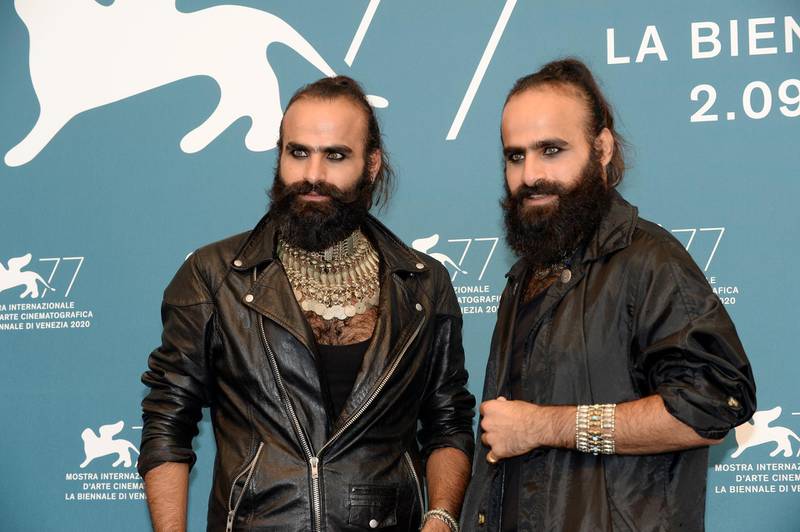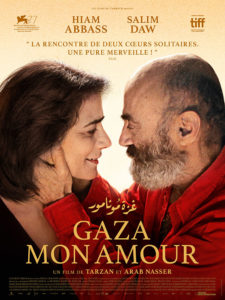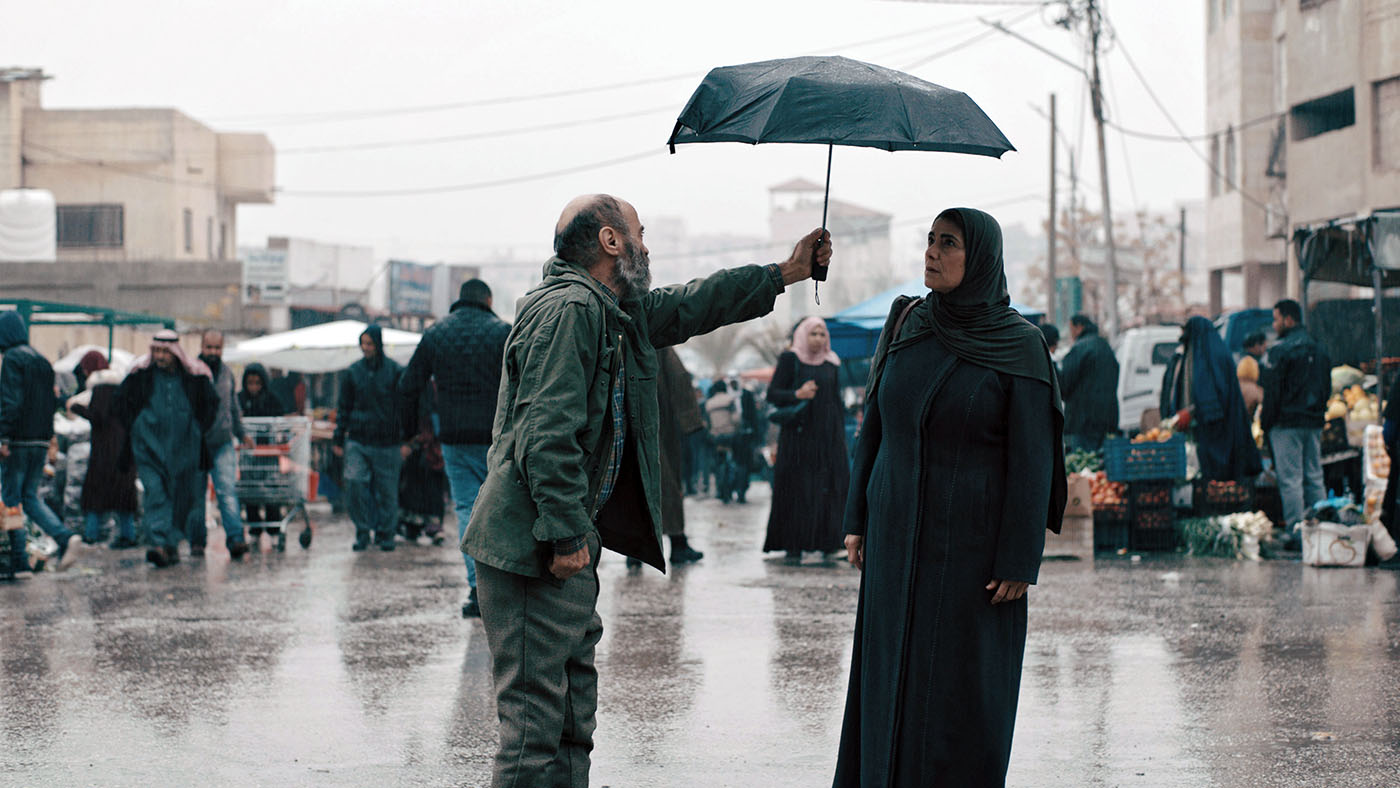Gaza Mon Amour is currently screening in Europe.
Jordan Elgrably
A new film from the Nasser brothers invites filmgoers to imagine that Gaza is a teeming center of commerce and human engagement much like any other city.
In truth, the nearly two million inhabitants of the Gaza Strip, half of whom are children aged 15 or younger, have lived for the last 14 years besieged by sea, air and land, surrounded by Israel’s armed forces, locked down and surveilled constantly by drones. Ninety-one percent of Gazan children suffer from PTSD (according to the Euro-Mediterranean Human Rights Monitor), while half the adults long for escape.
But life goes on. Every day, new couples get married, and every day, Gazans go to work and school. Gaza Mon Amour helps us see Gazans as people like us, albeit living under far harsher circumstances. Says co-director Tarzan Nasser, “In Gaza the sky and the sea are occupied, Gaza is surrounded, so for Gazans there’s no horizon.”
Yet Gaza Mon Amour is a romantic comedy in which a senior fisherman named Issa (Salim Daw) secretly pines for widowed seamstress Siham (Hiam Abbass), who lives with her divorced daughter Leila (Maisa Abd Elhadi) in the refugee camp. The two cross paths in the central market where Issa hawks his meager daily catch while Siham mends clothes for women across the way. Late one night Issa trawls up an ancient phallic statue of Apollo in his fishing nets and decides to hide it away at home, not knowing what to do with this mysterious and valuable treasure. Although the statue brings him no end of trouble, at the same time his confidence grows and eventually he decides to approach Siham.
Twin brothers Arab and Tarzan Nasser were born in Gaza in 1988, a year before the last movie houses were shutting down, and a decade before Israel devastated Gaza in the military onslaught they called Operation Cast Lead. The 33-year-old twins have been living in France since their first feature Dégradé (Degraded) screened to acclaim in Cannes’ Semaine de la Critique, in 2015. They initially got the idea for the story behind Gaza Mon Amour in 2013, when a Gazan fisherman brought up an ancient Greek statue from the sea.
In the press notes, Arab Nasser explains: “We try to avoid the expected clichés of Palestinian cinema. Our focus is on human beings, the people of Gaza. Granted, these people know suffering, war, a shitty life, but nevertheless, they live, which means that they have a daily life, love relationships, dreams, hopes. We want to film this, without making the reality of Gaza more beautiful or uglier than it is. We show the daily life of Gaza that foreigners do not know. Even Egyptian viewers are surprised by our films.”
Adds Tarzan, “We know the problems of the Palestinians, the conflict with Israel, but the Gazans don’t need to talk about it, they live it every day. The Israelis left Gaza in 2005 and [in 2007] closed the borders around it: it is a very small territory cut off from the world … by filming the daily life of the Gazans, we are filming the conflict even if we don’t talk about it directly. In fact, we film the effects of the conflict rather than the conflict itself.”

In its Sisyphean reality, Gaza is perpetually being persecuted, bombed and devastated, only to be rebuilt and destroyed again at a future date. At the crux of this repetitive drama is the state of Israel, for almost nothing comes in or goes out without Israel’s explicit approval. As Louis Imbert wrote in Le Monde on Sunday, “The recovery of the Palestinian coastal strip, devastated during last May’s war, is hampered by the Kafkaesque regulations imposed by Israel.”
In spite of the human rights catastrophe resulting from Gaza’s siege (97% of Gaza’s water is undrinkable), the Nasser brothers wanted to make an old-fashioned, at times absurdist romance, void of propaganda and politics, and they have succeeded, somewhat in the vein of their colleague Elia Suleiman, whose features Chronicles of a Disappearance and Divine Intervention were likely inspirations for the playfulness and offbeat humor in this film.
 The Nassers have hinted that their father, to whom they dedicate Gaza Mon Amour, inspired the character of Issa, a spry but lonely man who has never married. Happily for us, actor Salim Daw turns in an utterly absorbing and intimate performance; in sparse dialogue but with great skill, Daw brings the Gazan fisherman to life and in the process creates an indelible character.
The Nassers have hinted that their father, to whom they dedicate Gaza Mon Amour, inspired the character of Issa, a spry but lonely man who has never married. Happily for us, actor Salim Daw turns in an utterly absorbing and intimate performance; in sparse dialogue but with great skill, Daw brings the Gazan fisherman to life and in the process creates an indelible character.
Fisherman Issa and seamstress Siham are at an age, entering their 60s, where dreams of love and marriage often remain in the realm of fantasy, certainly in conservative Gazan society. But people are social creatures in whom hope springs eternal, and Issa for his part will not be deterred.
Hiam Abbass has been in so many of the films that have marked our time, from The Syrian Bride and Hany Abu Assad’s Paradise Now to The Lemon Tree and Cherien Dabis’ Amreeka, not to mention Miral and Peace After Marriage, that in a way, I feel I’ve grown up with her. To me Hiam Abbass is Palestine. “Palestinians are proud of her,” Arab Nasser notes, and who could quarrel with that assessment? Whenever Hiam Abbass turns up in a movie—including Munich and Blade Runner 2049—the quality of the film immediately climbs a notch.
In spite of the pain and empathy I feel whenever Gaza is the subject of conversation, when the lights went up at the end of Gaza Mon Amour, I felt I had just experienced an epic poem devoted to love and to all the people living in the Strip. The film communicates a quiet, incalculable beauty. It reminded me of the magic of cinema, of sitting in a darkened movie theatre, I had nearly forgotten over the past two years of the Covid pandemic. To judge from this second feature outing, Arab and Tarzan Nasser are filmmakers to follow.




